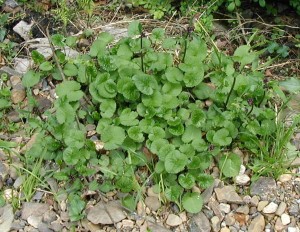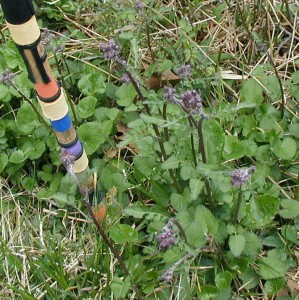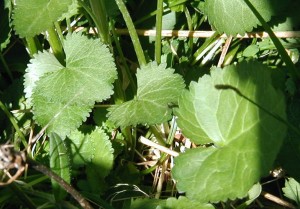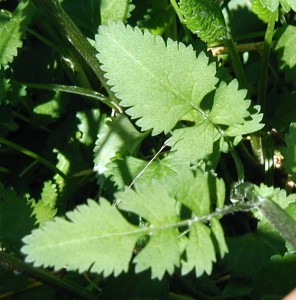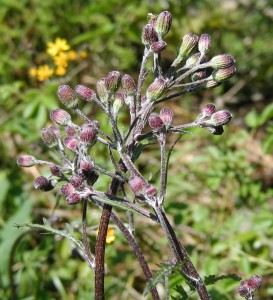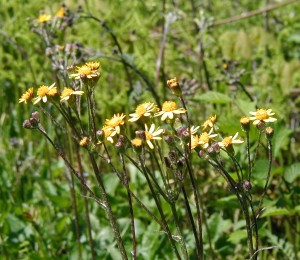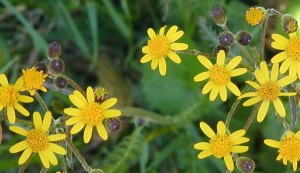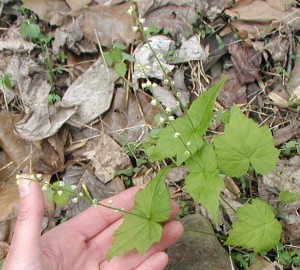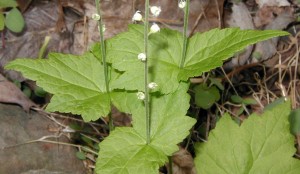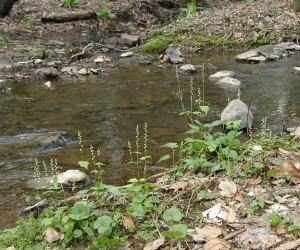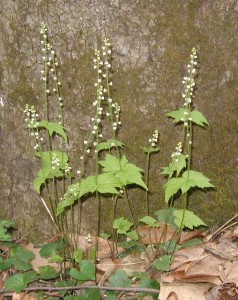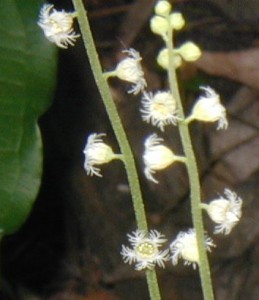Skunk Cabbage flowers are not your typical Spring blossoms. Anyone who wasn’t educated about the structure of this strange plant would be hard pressed to recognize the flowers as such, or to find them in the first place. The flowers grow in colonial fashion on a sphere inside a protective hood. One can see these protective structures on a walk through the woods or wetlands, but the flowers are so small that they’re not easily seen unless you get down on their level.
The protective hoods are well camouflaged to blend in with their surroundings. The colorful skunk cabbage hoods are yellow to light green and streaked with slashes and spots of maroon and brown. Most hoods are variegated while a few are mostly one color. It’s surprising how well these bright colors blend into the leaves on the forest floor. Unless you know what you’re looking for they can easily be missed.
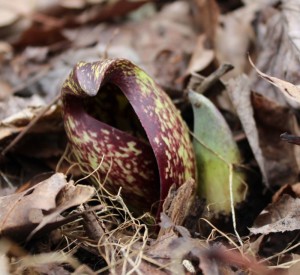
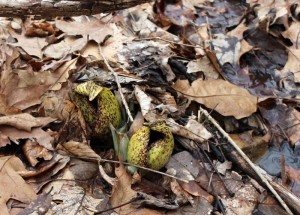
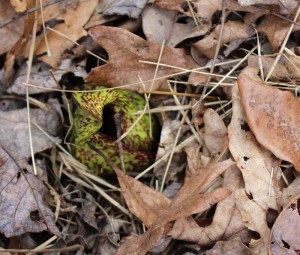
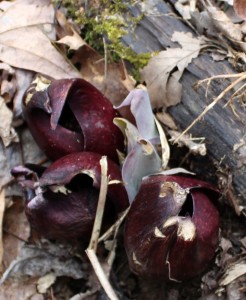
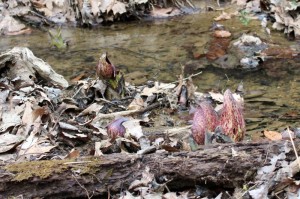
Flowers may be present for up to a few weeks before the leaves emerge from the wet ground like “rolled-up cigars”. As the leaves grow in size quickly they begin to uncurl and become these mammoth cabbage-like leaves, hence the name “skunk cabbage”.
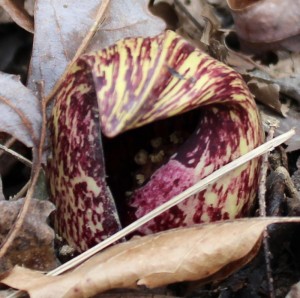
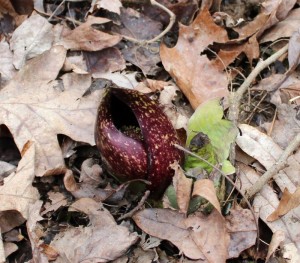
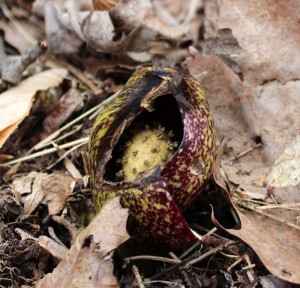
As I was stooping down to take these pictures it did smell like a skunk had recently passed that way. Of course it was the scent of the flowers that I was detecting. Their skunky smell beckons the flies that pollinate them. A few were buzzing around the area when I stopped by.
If you haven’t seen skunk cabbage before, now is a good time to look for it. The flowers are all but gone and dwarfed by the enormous leaves, but that makes it easier to spot these plants from afar.
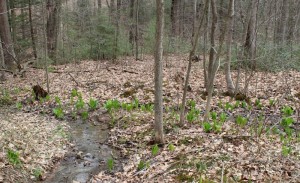
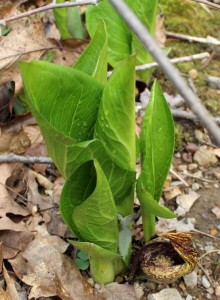
Look for skunk cabbage near water sources and in bottom lands. Skunk cabbage leaves grow out while the deciduous trees are still bare. The hooded flowers hide among leaves really well and they won’t be seen from a distance, so it’s much easier to find a patch of skunk cabbage once the leaves have appeared. The plants photographed here were growing next to or in a small stream or creek in the mountains in Central Pennsylvania.
After you’ve found a colony of these perennial plants, make a mental note of the location so you’ll be able to return there next year in early Spring to see the flowers.
